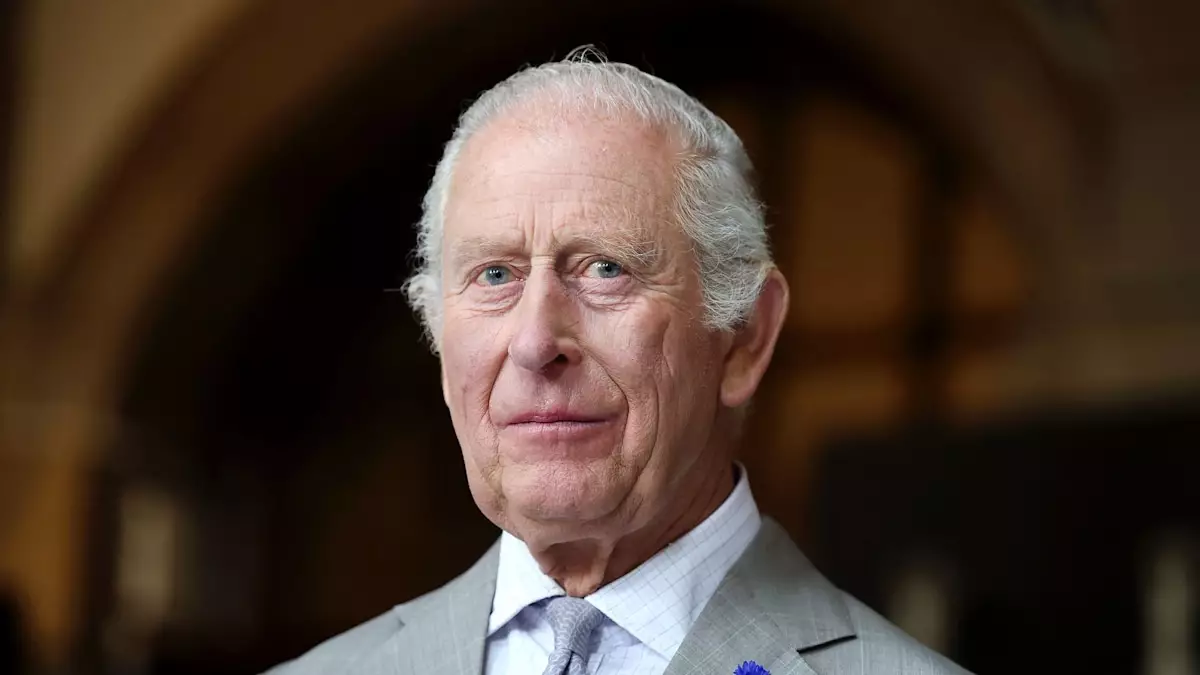In a world often characterized by fleeting interactions and insincere niceties, King Charles III stands as a beacon of resilience and authenticity. During a recent visit to Bradford with Queen Camilla, the monarch offered a rare glimpse into his ongoing battle with cancer. This revelation came during a personal encounter with Safeena Khan, a local florist, who inquired about his health. With characteristic British understatement, the King responded, “I’d like to think I’m on the better side [of my cancer journey].” Such candidness from a royal figure serves not only to humanize him but also to galvanize public empathy and support for those grappling with similar challenges.
Connecting through Shared Experiences
What makes Charles’ update especially poignant is its emergence from a casual yet genuine dialogue with a member of the public. His visit to the Impact Hub Yorkshire wasn’t just an obligatory engagement; it was an opportunity to connect with individuals working tirelessly to uplift diverse communities. In a society where mental health and personal suffering can often be shrouded in stigma, the King’s openness about his cancer journey illustrates the power of shared experiences. His remark about being on the “better side” not only uplifts himself but can offer a glimmer of hope to countless others navigating their cancer journeys.
King Charles’ candor not only reflects personal courage but also emphasizes his understanding of the broader tapestry of human experience. By engaging in conversations about well-being and recovery, he underscores a vital perspective: that even those entrenched in privilege face their own battles. This relationship between monarch and subject exemplifies the heart of a leader: authenticity and approachability.
The Role of Empathy in Leadership
In royal duty, there is an innate expectation of stoicism, yet Charles challenges this notion by infusing empathy into his role. During previous engagements, he has not hesitated to ask poignant questions of cancer patients, such as whether they are managing the side effects of treatment. This approach creates an atmosphere of mutual understanding and reflects his broader philosophy that empathy is a cornerstone of effective leadership.
His insights about diet and recovery, shared in a conversation with Stamford Collis, a young cancer patient, reveal his deep engagement with the subject matter. Overhearing such discussions at a Buckingham Palace garden party illustrates that even amid princely elegance, there lies a commitment to combating cancer—not just as a personal struggle but as a collective fight that resonates with many. The notion that “it’s sometimes about the diet and what you eat” showcases the royal’s effort to encompass a holistic view of health.
The Balancing Act of Duty and Personal Trials
Noteworthy is the fact that King Charles continues to fulfill his royal obligations despite his health struggles. Reports indicate that Queen Camilla has urged him to lighten his workload, illustrating the tension that often exists between personal well-being and public duty. Herein lies a complex narrative: a leader dedicated to his role while navigating the turbulent waters of illness. His refusal to slow down speaks volumes about his commitment to the monarchy and the communities he serves.
However, this relentless pursuit begs the question: at what cost does this commitment come? While his dedication is undoubtedly admirable, it also raises essential discussions about the importance of self-care among leaders. By prioritizing health alongside duty, King Charles can inspire not only by example but also by advocating for a more balanced approach to leadership that includes the well-being of both leaders and those they serve.
Lessons from a Royal Journey
Ultimately, King Charles III’s recent disclosures serve as a potent reminder of the intersection between health and leadership. His willingness to share his experiences and thoughts creates a dialogue about vulnerability in leadership, noting that strength does not preclude one from facing life’s adversities. The King’s journey reinforces the idea that genuine connection and understanding are invaluable in both personal and public spheres. As societies grapple with the impacts of illness and wellness, the lessons from his royal journey ring especially true: courage, empathy, and the importance of shared experience are powerful tools in combating life’s challenges.

